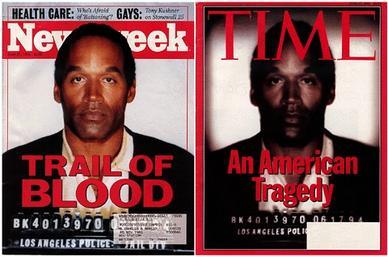The noose is off. Santosh Singh will live despite having raped and killed, thanks to the Supreme Court’s magnanimous approach and its merciful application of the ‘Rarest of Rare’ doctrine. Ever since the doctrine of Rarest of Rare was evolved in Bachan Singh v. State of Punjab to answer the mandate of Section 354 (3) of Cr.P.C., the question as to what constitutes ‘rarest of rare’ has never been satisfactorily answered, neither has there been the application of the doctrine consistent enough to result in the crystallization of the principle’s operative constituents.
Since judicial determination in order to deliver justice on case to case basis is the core function of the courts, sufficient room for a subjective application of law in view of the circumstances of each case must necessarily be allowed. However, it is the rigidity of the laws that supplies dependability and consistency thereby ensuring adherence. Therefore, excessive subjectivity in judicial determinations can only be counterproductive, particularly in cases involving heinous crimes, which is why consistency in the application of the Rarest of Rare doctrine is indispensable.
The Rarest of Rare doctrine as laid down in Bachchan Singh case and as evolved through other judicial pronouncements in a number of cases thereafter provides that life imprisonment is the rule and death sentence an exception to be exercised only in cases where the court, after having prepared a balance sheet of aggravating and mitigating circumstances and giving due weightage to the mitigating factors, is of the opinion that nothing short of death would meet the ends of justice.
Once the aggravation-mitigation ‘balance sheet’ is made, it is open for the court to attach weightage to the relevant factors to determine the final outcome of the exercise. So, a certain mitigating factor could be so compelling as to square and outweigh a number of aggravating circumstances. To prescribe exhaustive guidelines or set rigid standards regarding the quantum of weightage to be attached to different factors or to specify the way the weightage must be analyzed or calculated taking the entire set of circumstances into account would not only be difficult, but may also against the interest of justice in the long run.
But then, whether a certain factor can be taken into account as aggravating or mitigating is a question that has to be answered before such a factor is allowed to appear on the ‘balance sheet’ and to thus influence the final judgment. Therefore, a factor that is completely extraneous to the crime in question or to the criminal in relation to the alleged crime for the purpose of sentencing, cannot figure on the balance sheet. The element of subjectivity cannot be – neither should it be – squeezed out from final evaluation of the balance sheet, but the admissibility of the aggravating and mitigating factors to the balance sheet can be objectively analyzed for relevance. And it might be a little difficult but is not altogether impossible to at least broadly lay down what is irrelevant for the purpose aggravation-mitigation balance sheet, even if all that could possibly be relevant cannot be enumerated for want of adequate foresight.
 One of the very fundamental questions that must be settled as decisively as possible is whether a factor to be considered mitigating enough to appear on the aggravation-mitigation balance sheet must necessarily originate from the events that culminate in the crime in question with the crime taken as the last point beyond which the court would not consider any circumstances for admission to the balance sheet. And if an exception has to be made to dilate the ambit of consideration in this respect, how far can that be allowed and on what grounds?
One of the very fundamental questions that must be settled as decisively as possible is whether a factor to be considered mitigating enough to appear on the aggravation-mitigation balance sheet must necessarily originate from the events that culminate in the crime in question with the crime taken as the last point beyond which the court would not consider any circumstances for admission to the balance sheet. And if an exception has to be made to dilate the ambit of consideration in this respect, how far can that be allowed and on what grounds?
To put it straight, what Santosh Singh did after killing his victim is irrelevant as a mitigating factor unless the acts in question are indicative of unmistakable remorse and such change of heart that could not have otherwise occurred. The only factors that could be considered relevant are those that surround the criminal act or are integral part of the circumstances that led to the alleged crime.
The Supreme Court says:
Undoubtedly, also the appellant would have had time for reflection over the events of the last fifteen years, and to ponder over the predicament that he now faces, the reality that his father died a year after his conviction and the prospect of a dismal future for his young family. On the contrary, there is nothing to suggest that he would not be capable of reform.
Of course, fifteen years is a long time to ponder. But only that much can be presumed. How and what did he ponder over can only be known to Santosh in absence of any overt action relatable to such pondering. So, what was the result of this assumed ‘introspection’? Did Santosh Singh appear before the court and pled guilty asking, if not begging, to be punished for the monstrosity he committed? Did he approach the victim’s family for forgiveness? Did he join, support or start an NGO for the victims of rape and sexual abuse? Did he join any social cause whatsoever? So, what did he do that could indicate any kind of remorse? On the contrary, he consistently faked innocence and pled not-guilty, which can only add to the aggravation side of the balance sheet.
Yes, he later married and has a baby girl. What makes it a mitigating factor? Had he been married and had had a baby girl at the time of committing the crime, may be – just may be – it could be relevant for a ‘mercy plea’, but even in that case it could not be a ‘mitigating’ factor unless the wife or the daughter or the fact of his marriage was in some way directly relatable to the crime. In this case his marriage, wife and daughter do not have the remotest of connection with the crime he has been convicted of. How can it possibly dilute his guilt? And mitigation is nothing but ‘dilution of guilt’, and must not be confused with ‘mercy’.
While mitigation cannot ordinarily involve factors that arise after the crime has been committed, aggravation can. Destroying evidence, threatening victim’s family or witnesses or attempting to defeat the course of justice by any means can be placed on the aggravation side on the balance sheet.
So far as the possibility of reform is concerned, a great degree of weightage cannot be attached to it in cases involving crimes like rape and murder because such offences involve brutality and disregard of human dignity to the extent that the retributive backlash of the society is extreme and must be answered in the interest of justice. Furthermore, considering possibility of reform a factor in favour of a remorseless convict is nothing short of stretching the limits of kindness.
Factors like age, maturity, social position, educational qualification and professional standing of the accused are definitely relevant for the purpose of the mitigation-aggravation balance sheet and can be added on either side because those factors surround the crime and their relevance cannot be automatically ruled out. However, the fact that Santosh Singh was “a young man of 24 at the time of the incident” cannot be accorded the weightage that the Supreme Court seems to have attached to it because ‘young men’ as old as 24 are old enough to understand the nature and consequences of committing heinous crimes like rape and murder. The ‘passions of youth’ cannot be a stand-alone mitigating factor.
On the aggravation side, there is a lot to be considered. Santosh Singh had constantly harassed the victim for a long time and his criminal conduct had been reported to the police several times. Taking undue advantage of his father’s position as a high ranking police officer, he did persisted and ended up killing the victim. The circumstances in which the victim was killed together with the conduct of the accused thereafter admit of no mitigation.
As for the conviction based upon circumstantial evidence, whether a person can be convicted on the basis of circumstantial evidence or not is a question different from the question of the quantum of punishment, and both of these questions have to be separately answered. One cannot inform the other. Once the person has been convicted of crimes as heinous as rape and murder, the basis of conviction cannot be a relevant factor at the stage of sentencing because that implies a doubtful conviction, which is contrary to the fundamental principles of criminal jurisprudence. Benefit of doubt must go to the accused. Therefore, there can be either conviction or acquittal, but a ‘doubtful conviction’ is a contradiction in terms.
The mitigating factors enumerated by the Supreme Court are either, by and large, extraneous, or have been accorded undue weightage. While the apex court’s unwillingness to extinguish a life is quite understandable, the broad shoulders of the law and the courts are sometimes summoned to carry unpleasant burdens. Courts can be humane, but let the President be ‘merciful’.
Originally written for and published in LAWYERS UPDATE as Cover Story [November 2010 Issue; Vol. XVI, Part 10]






